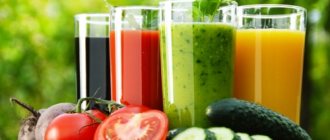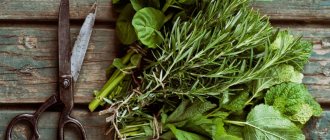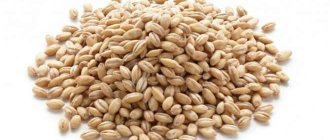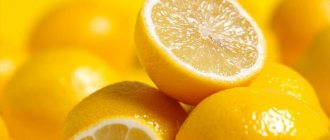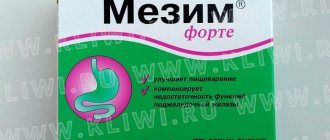In addition to medications, herbal medicine plays an important role in the treatment of pancreatitis. Healing herbs for pancreatitis reduce the hyperfunction of the inflamed gland, relieve pain and spasms. Natural ingredients with virtually no side effects, taken for a long time and systematically. The individual characteristics of plants and possible contraindications are taken into account, so before using folk remedies, consult a gastroenterologist.
herbs for pancreatitis
Causes and symptoms of inflammation
Inflammatory phenomena in the pancreas can occur for certain reasons, which include:
- excessive consumption of alcoholic beverages;
- disturbances in the functioning of the gallbladder;
- gastroduodenitis, acute duodenitis;
- hereditary predisposition;
- nervous disorders, severe stress;
- obesity;
- poor nutrition;
- endocrine pathologies;
- ulcers of the stomach, duodenum;
- prolonged use of potent chemicals;
- some infectious diseases;
- autoimmune pathologies.
Symptoms of acute inflammation are quite intense:
- constant pain in the left and right hypochondrium of a girdling nature, which can radiate to the area of the shoulder blades, back, sternum;
- vomiting, nausea;
- bloating;
- stool disorders (constipation, diarrhea);
- belching, heartburn.
The main pathologies of the pancreas are diabetes mellitus and pancreatitis. With such diseases, severe dry mouth is observed, which does not disappear even after taking fluids.
Complex therapy of pathology
The use of herbs and herbs for the pancreas is not the main treatment, but it has a beneficial effect on the body as a whole (reducing the severity of inflammation, removing toxins, cleansing blood vessels). Herbal medicine is complementary in nature, that is, it is used as an auxiliary technique in the main therapy. Therefore, before using the selected recipe, it is recommended to consult a doctor.
What herbs are used in preparations for the pancreas?
Necessary products and plants
If you decide to go for natural treatment, then you need to know this. In case of mild digestive problems caused by risk factors associated with an unhealthy lifestyle, auxiliary raw materials can be used to provide proteolytic enzymes and pancreatic stimulating substances. They facilitate the digestion of dietary protein or further stimulate the exocrine function of this gland, which promotes the regeneration of the pancreas.
Products and collection of herbs for the treatment of the pancreas include:
- Pineapple. Its main active ingredient is bromelain, a mixture of enzymes that accelerate metabolic processes. It is used for gastrointestinal discomfort as an aid in the digestion of proteins and fats and as an anti-inflammatory.
- Papaya. Its unripe fruit is used to produce papain, a proteolytic enzyme that breaks down proteins. It is used as an aid for indigestion of proteins and fats.
- Haronga. A plant from the St. John's wort family. The raw materials in herbal medicine are its bark and leaves. Contains substances that stimulate the exocrine function of the pancreas. Recommended for use in cases of indigestion due to insufficient production of pancreatic juice
. Contraindications to its use are acute pancreatitis, conditions of exacerbation of chronic inflammation of this organ and serious diseases of the liver and gall bladder.
Please note that taking any herbal medications should be discussed with your doctor. The substances they contain may interact with the medications used.
List of medicinal herbs
With such diseases of the pancreas, including pancreatitis, characteristic symptoms appear in the form of nausea, indigestion, vomiting, flatulence, intense pain, and constant weakness. The use of herbal teas is effective in complex treatment, subject to mandatory consultation with a specialist. The following medicinal plants are used:
- series;
- chamomile;
- parsley;
- blueberry;
- peppermint;
- immortelle;
- yarrow;
- elecampane;
- wormwood;
- St. John's wort.
From these plants you can prepare suitable mixtures for the treatment of a particular pathology.
Chamomile and immortelle
This plant is often included in herbal preparations for the pancreas. Chamomile promotes a beneficial effect on the activity of the pancreas in the form of antispasmodic, anti-inflammatory and antioxidant effects. Tea made from the leaves of this plant is very popular. Dry chamomile leaves are poured with boiling water and infused for 10–15 minutes. The product is added to tea for a preventive effect.
Immortelle is most effective in tincture form. The leaves of this medicinal plant (2 tablespoons) are poured with 1 liter of water and kept on fire until boiling. This tincture should be taken warm three times, 100 ml per day before meals.
Herbal infusions for the pancreas should be prescribed by a doctor.
Herbal tea for the pancreas
To treat diseases of this organ, you can use a herbal collection that is sold in a pharmacy. One of these remedies is the collection “For pancreatitis” from pharmacological. It contains the following elements:
- Anise fruits have antispasmodic and anti-inflammatory properties, and also have a bactericidal effect on the mucous membranes of the digestive organs and respiratory tract. It is used to relieve pain, as a diaphoretic, and has a mild laxative and antiseptic effect. What else does this herbal collection for the pancreas contain?
- Bean shells, which contain a large amount of useful substances - proteins, microelements, vitamins, amino acids and flavonoids. The presence of bean leaves in the collection of herbs leads to normalization of metabolism, improves protein synthesis, stimulates the production of enzymes, and provides elasticity to blood vessels. The action of this plant includes the formation of insulin, normalization of water-salt balance and sugar levels, which is very useful for diseases of such an organ as the pancreas. The composition of the collection for the treatment of pancreas is unique.
- Corn silks. The widespread use of corn silk is due to the presence in them of fatty oils, ascorbic acid, vitamin K, saponins, starch and selenium. Due to the ability of these elements to stop inflammatory processes, their use is recommended for inflammation of the pancreas and urinary tract, for the prevention of malignant processes.
- Dandelion root. This medicinal component of the collection for pancreatic pancreatitis acts as a mild laxative, stimulates appetite, helps normalize digestion in certain pathologies of the stomach and pancreas, has a choleretic effect, helps restore electrolyte balance, balances intestinal microflora, and has a beneficial effect on the motor and secretory functions of the digestive tract.
- Knotweed grass is an element that contains many vitamins, fiber, protein, resin, sugar, tannin, carotene, pectin and silicon. This plant perfectly removes toxins from the body and has a positive effect on the blood and digestive processes.
- Violet grass. This plant has diaphoretic, blood purifying, anti-inflammatory, antispasmodic, diuretic, antipyretic and healing properties. It is widely used to treat a variety of pathologies, including pancreatic diseases.
- The herb St. John's wort is often included in preparations for the liver and pancreas. This medicinal plant contains nicotinic and ascorbic acids, flavonoid compounds (quercetin, rutin), saponins, sugar, carotene, hypericin, tocopherol, cetyl alcohol, hyperoside, choline, phytoncides, as well as resinous, tannin and bitter substances. These components make it possible to use this plant to achieve antibacterial, analgesic, antiseptic, wound healing, diuretic, choleretic, antirheumatic, astringent and anthelmintic effect, as well as as a regenerating agent.
The peculiarities of this herbal collection are that it acts comprehensively on the entire digestive system and produces bile, which together has a positive effect on the pancreas itself.
What herbs can you drink?
Before treating pancreatitis with useful herbs, a consultation with a gastroenterologist is necessary. In an acute condition, first of all, the pain syndrome is relieved and the critical condition is alleviated. Only after severe symptoms have been relieved do they begin herbal medicine. When preparing natural medicine, grass, fruits, leaves, and roots of plants that have healing and anti-inflammatory properties are used.
What effect should recipes containing herbal ingredients have:
herbs against pancreatitis
- Anti-inflammatory
- Enveloping
- Painkillers
- Wound healing
- Choleretic
List of effective remedies for pancreatitis of the pancreas:
Sophora japonica against disease
Sophora japonica. Initially, this heat-loving plant appeared in China, Korea, and Japan. After it began to be cultivated in Russia, Sophora became widespread in the Krasnodar Territory, Crimea and Ukraine, Kherson and Odessa regions. It is quite effective against the disease, since it has a high wound healing effect. The content of vitamins and healing flavonoids in it is so high that it is used to treat hypo- and vitamin deficiency. Restores the activity of the digestive tract as a whole and significantly reduces pain arising from the pathogenic process in the pancreas.
pancreatitis and yarrow
Yarrow. The plant is notable for having a bactericidal, astringent and enveloping effect. Yarrow is used in the treatment of the gastrointestinal tract, including acute pancreatitis. It quickly affects the digestive tract and promotes the restoration of pancreatocytes.
oats for pancreatitis
Oats. For the treatment of the pancreas and other gastrointestinal pathologies, cereal is used. Depending on the recipe, oats are brewed in hot water whole or crushed. Oatmeal decoction coats inflamed organs, relieves swelling, has an antispasmodic effect and soothes pain. Recipes based on oats show high results not only in the treatment of diseases of the digestive tract, but also in kidney diseases, gout, low immunity, and diabetes. For a patient with pancreatitis, it is very important to generally strengthen the body and restore metabolism, then treatment of the disease will be more effective.
flax seeds
Flax seeds. No less effective in treating the digestive system is a decoction of flax seeds. The product is known for its antacid, healing and choleretic effects. A distinctive feature is the presence of phenolic compounds in the composition, which interfere with the synthesis of pancreatic enzymes that promote self-digestion and destruction of the pancreas. Flax infusions prevent exacerbation of pancreatitis and the development of malignant tumors.
Chamomile for pancreatitis
Chamomile is often used as a healing herb for cholecystitis and pancreatitis. It belongs to the medicinal plants that are most often used to treat the digestive tract. Chamomile is especially effective for chronic inflammation, gently influencing the condition of the diseased organ for the better. Gastroenterologists recommend taking medications as the main therapy and, as a supplement, chamomile decoction.
chamomile for pancreatitis
Beneficial features:
- Antispasmodic
- Choleretic
- Carminative
- Hemostatic
- Antiseptic
- Anticonvulsant
If there is constant diarrhea and individual intolerance, drinking chamomile tea is not recommended. For inflammation of the pancreas, the following recipe is useful:
- Take 1 tbsp. l. chopped chamomile and pour 220 ml of boiling water, let it brew for 1.5 hours. Strain the herbal infusion and drink 0.5 cups 2 hours before meals. Duration of use is 2-3 months.
- If you add other herbal ingredients to chamomile, the therapeutic effect will increase. To do this you need to take 1 tbsp. l. chamomile flowers and mix with 1 tsp. fennel and blueberries. Add 350 ml of boiling water and place in a water bath for 7 minutes. Strain and consume 50 ml 15 minutes before meals. Duration of treatment is 3 weeks.
St. John's wort and pancreatitis
St. John's wort contains tanning enzymes, essential oils, flavonoids, and other useful components. In medicine, plant shoots collected during the flowering phase are widely used. Infusions and decoctions help reduce pain due to the astringent and enveloping effect of St. John's wort, and have a choleretic and antiseptic effect.
If herbal medicine is prescribed, herbal treatment is carried out with caution, since there may be contraindications for use.
St. John's wort for illness
St. John's wort decoction should not be taken in the following cases:
- Individual intolerance
- Pregnancy
- Postoperative period
- Manic psychosis
- Regular sun exposure (skin spots may appear)
- Children under 14 years old
A popular recipe for chronic and acute inflammation:
- Place 1 spoon of dried ingredient in a container and add hot water (180 ml). The medicine is infused for 12 hours.
- Take 40 ml 3 times a day after meals. The course of treatment is 21 days. Relief occurs as early as 2 weeks of treatment.
- To improve the condition of the pancreas in the treatment of pancreatitis, it is good to add other herbs to St. John's wort.
Collection recipe:
Mix 2 tbsp. St. John's wort and chamomile, add 4 tbsp. l. yarrow and 1 tbsp. l. wormwood. Take 3 tbsp from the mixture. l. collection and pour 650 ml of hot water, then place in a water bath for 12 minutes. Take the resulting decoction 0.5 cups between meals. Duration of use: 1 month.
Mint for illness
mint for pancreatitis
The perennial plant has been used in medicine since ancient times; mint decoction is especially effective in the treatment of gastrointestinal and respiratory tract diseases. The herb for the treatment of pancreatitis contains many active components, including menthol.
In addition to antispasmodic, choleretic and carminative effects, mint leaves have a sedative effect, which is important for sick patients. Often the development of the disease and its exacerbation develops against the background of constant depression and neuroses.
mint tea and pancreatitis
A distinctive feature of peppermint is that for herbal medicine it is not necessary to make tinctures or special decoctions. In the absence of contraindications, mint tea can be drunk systematically and for a long time. When consumed within reasonable limits and without individual intolerance, mint tea can be consumed during pregnancy and lactation.
If the patient has hypotension, it is not recommended to use mint, as it can lower blood pressure. St. John's wort and oregano are added to mint. Herbal tea will help eliminate hyperfunction of the pancreas, and restore a shattered psyche, relieve neuroses and insomnia.
Collection No. 2
Pharmacy collection for the pancreas is intended for the treatment of diseases of the pancreas, as well as for their prevention. This remedy promotes the enzyme pancreatin, necessary for the digestion process, relieves inflammation and normalizes the functions of the gland, resolves its seals. Collection No. 2 has a comprehensive healing effect. It normalizes motor skills and secretory functions, relieves pain, and has a restorative effect on the digestive system.
It contains the following medicinal plants: bean leaves, agrimony grass, galega grass, elecampane roots, centaury herb, Sophora fruits, three-leaf watch grass, lingonberry leaves, tuberiferous zopnik herb, dried food Jerusalem artichoke, aralia roots, blueberry fruits.
To prepare the medicine, you need to pour 1 tablespoon of this herbal mixture into 0.5 liters of boiling water, wrap it, leave for one hour, strain. Take 0.5 cups warm half an hour before meals 4 times a day, the last time just before bed. The packaging of the herbal mixture is designed for a monthly course of administration.
Collecting for pancreatic disease can be very effective.
Unique treatment scheme
The Department of Herbal Medicine of RUDN uses a unique scheme, which is actively used in the remission stage.
The recipe includes the following herbs:
- St. John's wort.
- Mint.
- Chamomile.
- Sagebrush.
- Yarrow.
- Cottonweed.
- Plantain.
Preparation: take 15 grams of plantain and cucumber each, 10 grams of all other herbs.
Pour boiling water over the herb collection and leave for half an hour. It is best to infuse the recipe in a thermos, but if you don’t have one, you can use a jar with a closed lid. Application : drink 1/2 cup of decoction 3 times a day.
We said above that this is not just herbal treatment, but a therapeutic scheme for RUDN University. Therefore, in addition to the prepared decoction, the patient must also take medications.
For pancreatitis, the following are prescribed in combination: Poseilonol, Chitopan or Florenta.
Remember, before preparing a prescription and taking the medications described above, you must consult a doctor. If the dosage is incorrectly selected, complications may occur.
Choleretic herbs for pancreatitis
Quite often, pancreatitis is accompanied by cholecystitis, because in the digestive system of the body all organs are interconnected. This occurs due to the fact that the bile ducts are located next to the gland, so the inflammatory process often affects this area.
The herbal complex for pancreatitis should include plants that have a choleretic effect in order to normalize the secretion of bile, which is responsible for the breakdown of fats.
One of the most famous complexes of choleretic action is a mixture of mint, string and elecampane. The composition is poured with a glass of boiling water, wrapped and infused for 8 hours. Take the medicine chilled, one-third of a glass before meals. Medicinal plants such as corn silk, immortelle, knotweed, red rowan, etc. also have choleretic effects. Choleretic collection for pancreatitis cannot be used if there are stones in the gallbladder, as this can aggravate the situation and lead to complications.
How to take herbs correctly?
Any treatment is carried out wisely. Herbal medicine is no exception. The main principle of medicine: “Do no harm.” Every person who takes herbs that help in the treatment of pancreatitis should also act in relation to themselves. For anyone who wants to try herbal treatment, there are several recommendations.
- Carefully study the scientific literature on medicinal plants; additional sources of knowledge are never superfluous.
- Consult your doctor, perhaps he can point you in the right direction in herbal treatment.
- If your doctor is against alternative medicine, see another doctor who is competent in this field.
- Follow the prescribed diet. Remember that eating fatty foods, drinking alcohol or smoking after an exacerbation of pancreatitis can lead to very serious consequences requiring emergency care and resuscitation.
- Don't stop taking your medications. Herbal treatment does not work immediately, unlike synthetic drugs and their analogues. But unlike them, it does not have a negative effect on the body.
- Follow the dosage when taking it. Excessive use of any medicine leads to negative consequences, sometimes disastrous. A medicinal herb is also a medicine!
- Be sure to take breaks from herbal treatments. Constant use will only make you worse.
- Prevent the occurrence of diseases. Proper nutrition, exercise and giving up bad habits are much more effective than any treatment. It is easier to prevent any pathology than to treat it.
Tibetan collection
This medicinal collection has gained popularity due to its wide spectrum of action: it eliminates various inflammatory processes, is famous for its diuretic and choleretic effects, and helps normalize digestive functions.
It contains a complex of herbs: birch buds, St. John's wort, immortelle and chamomile. You can buy this product at any pharmacy and prepare it at home. To do this, you need to take 100 g of each component, thoroughly chop and mix. For making tea 1 tbsp. l. pour 200 ml of boiling water. It is recommended to take Tibetan tea for the treatment and prevention of gland diseases, one glass before bed with the addition of honey.
Monastic tea for pancreatitis
For pancreatitis, monastery tea is often used, which helps stimulate the functioning of the internal secretion organs and is effective in complex forms of the disease. It has a synergistic and antispasmodic effect, effectively improves the functioning of the digestive tract, reduces acidity, eliminates pain, fights symptoms of intoxication in the body, and compensates for endocrine insufficiency.
This herbal mixture for the pancreas contains: sage leaves, wormwood, elecampane, chamomile flowers, calendula flowers, string and other plants.
Pancreatitis and traditional medicine
Effective treatment of pancreatitis requires drug therapy prescribed by the attending physician after the necessary diagnostic procedures. A therapeutic diet plays an important role, without which taking medications will not give the expected effect. Diet therapy involves eliminating foods that irritate the digestive system from a sick person’s diet. Alcohol is extremely harmful because it destroys pancreatic tissue; drinks based on ethyl alcohol should not be consumed at the slightest suspicion of pancreatitis.
Doctors recommend taking herbs for pancreatitis as an additional and effective method of treatment. Remember, herbal medicine is applicable only in the absence of complications and easing of symptoms of exacerbation.
Herbs for the treatment of pancreatitis exhibit an analgesic effect, help reduce inflammation and increase the ability to regenerate. Before giving preference to plants for the treatment of the inflammatory process of the pancreas, it is necessary to study the properties: herbs that stimulate the functioning of an important organ in the digestive system cannot be included in the medicinal herbal collection. You will need to know which infusions and decoctions are recommended to drink and which are not.
Reviews
Almost half of the world's population suffers from pancreatic diseases in latent and acute forms. Reviews regarding pancreatitis and other similar pathologies contain a lot of information about how to treat these diseases using official and traditional medicine. Patients note that herbs are not the main medicine, but they help to significantly weaken the course of the disease, relieve pain, improve the process of digesting food, and restore the structure of the gland. There are many good reviews about collection No. 2. Patients say that this collection has a pleasant taste; you don’t need to add sugar and honey to it. There were also no side effects of this collection for the pancreas. In addition, a good therapeutic effect was observed.
Briefly about pancreatitis
Pancreatitis develops due to inflammation of the pancreas, which is an organ with mixed secretory activity. The gland releases enzymes into the intestinal lumen that are involved in digestion and also regulates sugar metabolism in the body.
Pancreatitis has two forms: acute and chronic. The acute stage is manifested by symptoms of sudden pain covering the entire left hypochondrium. The pain is accompanied by continuous vomiting, often mixed with bile. Acute inflammation, without proper assistance, can lead to death of the pancreas and death.
Herbs are used to treat pancreatitis during recovery from acute pancreatitis and to assist in the treatment of chronic pancreatitis.
